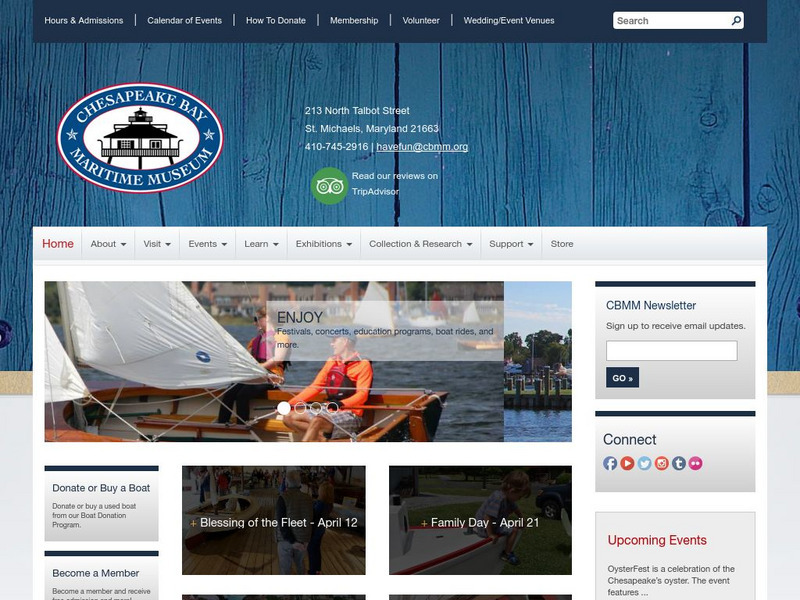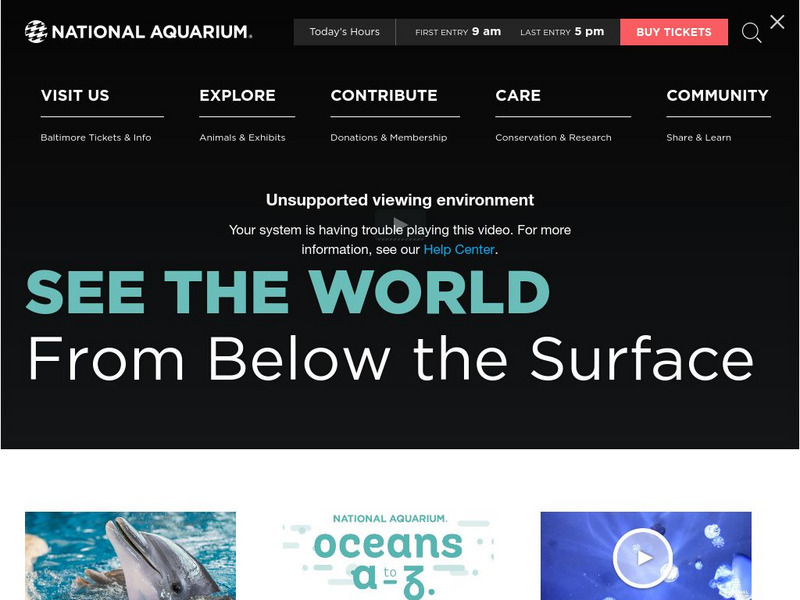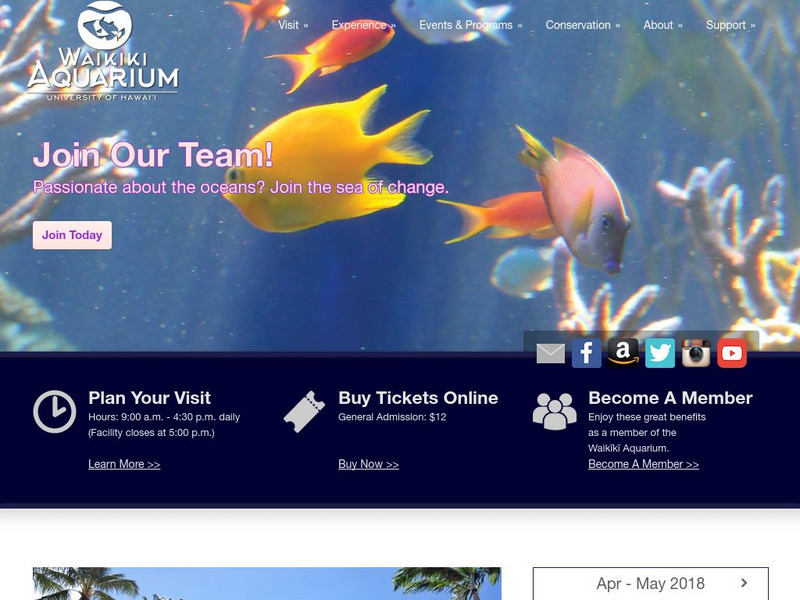Curated OER
Fish Tank Territories
Students observe swimming and resting patterns of aquarium fish to determine how different parts of the habitat are used. Different pairs of students should compare their results after several days to look for daily patterns.
Curated OER
Number Search in Monterey Bay Aquarium
Youngsters search for an animal with body parts for each number from one to ten during a field trip to an aquarium. They count rays, fins, feet, gills, eyes, spots or anything. When they get back to the classroom, they compile their...
Curated OER
Reef Sharks!
Young scholars visit an ocean aquarium exhibit where they can observe Black tip reef sharks. They observe the shark's behavior and read any information exhibited on the walls. They complete a worksheet based on information collected.
Curated OER
Monterey Bay Aquarium: ABC Search
This attractive worksheet has learners identify beginning sounds in words using sea animals and related topics as a guide. Students fill in the beginning sounds for such words as diver or octopus. It can be used as a language arts...
Curated OER
Algae in the Aquarium
Tenth graders determine the cause of an algal bloom in a classroom aquarium. Students analyze the situation and present a solution to the problem in the given time frame after researching and conducting experiments. Solutions are...
Curated OER
Busy Otters
Young scholars prepare for a trip to an aquarium by identifying otters, their body parts and behaviors as they read "Pup's Supper", do an otter pantomime and make a puppet. After their field trip, they complete a Venn Diagram of Otter...
Curated OER
Your Own Fresh Water Aquarium in the Classroom
Pupils explore aquariums. In this fish and ecosystems lessons, students establish a freshwater aquarium environment using materials provided. Pupils read about and care for the classroom fish.
Curated OER
Monterey Bay Aquarium: One-Two-Three
In this counting worksheet, students examine pictures of animals that live in the Monterey Bay Aquarium. They describe the animals by telling how many of a specified characteristic they have. Example: A sea otter has one tail.
Curated OER
Aquarium Field Trip
In this water animals worksheet, students study the animals that can be found in an aquarium. Students must be able to identify the eight different animals.
Curated OER
Goldfish
In this coloring page worksheet, students color a detailed drawing of a goldfish. There are no words or instructions on the paper.
Curated OER
Changing the Water in the Aquarium
Students discover the importance and how to change the water in an aquarium. As a class, they review the types of impurities that are found in water and discuss how to keep the tank as clean as possible. They develop a water change...
Curated OER
Aquarium Bill of Rights
Students review the Bill of Rights on Aquademics and list the rights that are guaranteed to United States citizens. In groups, they role play the role of important leaders whose rules would make a difference for the lives of fish in...
Curated OER
Classroom Aquarium
Pupils turn their classroom into a giant aquarium. They work together to decorate the bullentin boards, windows, desks and computers into an aquarium setting. They dress in fish costumes to go along with the theme, while focusing on...
Curated OER
Sun-Catcher Aquarium
Students discuss which elements in the world would make the best sun-catchers. Using a worksheet, they cut out and color the plants and animals that could be placed in the aquarium. They use cellophane and place their aquarium under a...
Curated OER
Fish Aquarium
Students make an aquarium for fish out of construction paper. They count the number of fish in their aquarium, as well as, recognize the colors of their fish.
Curated OER
DOES A FLUCTUATION IN TEMPERATURE IFFECT THE GROWTH AND SURVIVAL RATE OF AQUATIC PLANTS?
Students determine if different temperatures effect the growth and survival rates of aquatic plants and evaluate the optimal temperature for the growth of aquatic plants.
Language Guide
Language Guide: Los Animales Del Mar (Spanish)
This resource provides colorful pictures of sea animals interact with audio and the written vocabulary word as you move your mouse over the picture. This vocabulary would compliment a science unit on marine life.
Other
Chesapeake Bay Maritime Museum
This great site offers information about the Chesapeake Bay, its history, people and it's stories. "Tour" the museum to find interesting information.
Other
Deep Sea World and Blue Planet Aquarium, United Kingdom
This is the combined homepage for Deep Sea World and Blue Planet Aquarium. There is some information about each facility. The buttons for more information on all topics are located at the bottom of the page. Blue Planet Aquarium is...
Other
National Aquarium in Baltimore
In addition to a variety of pre-visit and post-visit lessons for classroom teachers, the aquarium also provides (at a reasonable fee) classroom visits to enhance student understanding of marine life.
Other
University of Hawaii: Waikiki Aquarium
Learn about the Waikiki Aquarium by taking a virtual tour and viewing pictures from live cameras.
Other
Durrell Wildlife Conservation Trust: Jersey Zoo
Jersey Zoo is the headquarters for the Jersey Wildlife Preservation Trust near St. Helier, Channel Islands. This site contains information about the animals, the park, and the activities outside of the park.
Other
Underwater World, Singapore
At this site you will learn all about Underwater World in Singapore. You can get general information, take a virtual tour, see pictures, and download movies of a diver feeding fish.
Read Works
Read Works: A School Trip to the Aquarium
[Free Registration/Login Required] This text is a fictional story about a field trip to an aquarium. This passage is a stand-alone curricular piece that reinforces essential reading skills and strategies and establishes scaffolding for...























